education
posts displayed by tag

Team Finland China Day on May 18
May 18 2016What’s up China? Team Finland China Day at Scandic Park, Helsinki
Meeting with companies and institutions involved in ICT Alliance facilitated cooperation, including environment (indoor air), smart spaces, health, rehabilitation, and education.

Sino-Finnish Education Innovation Center launch a new workshop on May 16
May 16 2016Sino-Finnish Education Innovation Center launch workshop hosted by OKM as part of the Sino-Finnish Learning Garden cooperation. University of Helsinki and Beijing Normal University (BNU) signed the agreement to establish The Sino-Finnish Joint Learning Innovation Institute that will consist of five thematic centers, one of which is company cooperation between Chinese and Finnish companies in EduTech.
ICT Alliance is involved developing cooperation with BNU and Central China Normal University (CCNU) at Wuhan. With CCNU as a central actor for China’s e-learning and education cloud activities the proposal on Sino-Finnish EduCloud is being prepared. Finnish company partners involve LifeLearn, xEdu and several affiliated companies.

China – Finland Strategic ICT Alliance International Workshop Week 21 – 24 April 2015 will be held in Shanghai
Mar 31 201521/04/2015 – 24/04/2015
China – Finland Strategic ICT Alliance International Workshop Week 21 – 24 April 2015, Shanghai

The China – Finland Strategic ICT Alliance International Workshop Week 21 – 24 April has been organized by the China-Finland Strategic ICT Alliance.
The objective of the Workshop week is to review the current joint projects and to plan new cooperation initiatives and project proposals in areas of joint interest. Suggested topics to be covered throughout the week relate to ongoing or new research programs and areas identified for potential cooperation. New themes may be proposed by prospective theme leads.
- Future Networks (5G)
- Intelligent Sensing & Services
- Navigation, Positioning and Geospatial Services, Intelligent Traffic and Urban Mobility, Urban Sensing
- Sustainable Urban Development
- Health, Wellbeing & Senior Services, Smart Home – Smart Life
- Trust, Security and Privacy
- Cloud Services – setting up services for pre-commercial pilots
- Industrial Internet
For more information please contact the organizers:
DIGILE – the Finnish Strategic Center for Science, Technology, and Innovation in Internet Economy, and WiCO – The Shanghai Research Center for Wireless Communications, who are the coordinators at Finland and China side as appointed by Tekes and MOST.
ISeeLife! Lab –Intelligent Services Embedded in Everyday Life – is a new open platform launched at the end of 2014 at the Sino-Finnish Centre, Tongji, for collaborative research, education and innovation activities. Planned areas for 2015 include health, wellbeing and senior services, smart spaces (personal space – home –school – workspace), and “life centric” design of services and spaces in urban environments.
(*More details for workshop time, location, traffic information, please refer to the programme overview in the attachments below.)
Attachment

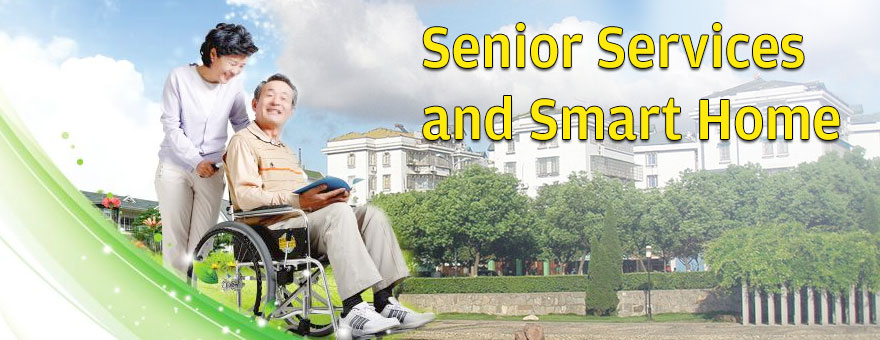
Focus area: Senior Services and Smart Home
Jul 07 2014Ageing of the population is a common trend in the developed countries and will start to face some of the developing societies as well. In China the challenges related to ageing society services – and the associated opportunities – are of exceptional scale. The statistics of Sixth National Population Census by the Chinese Ministry of Civil Affairs indicated that the number of people older than 60 years was close to 200 million (over 13 percent of the total population) in 2012 and the senior population will continue to grow very fast in coming 30 years. The one child policy (4-2-1 family structure) and urbanisation will further amplify this challenge.
Consequently, there is a vast gap between the elderly care resources and the needs in this growing market. The government naturally cannot alone take the responsibility of providing the needed services for the rapidly aging population in China. This creates new business opportunities in public services, private services and in citizen and consumer driven solutions. For example, the rapid growth of the (mobile) Internet in China as well as the rapidly developing communications and cloud infrastructure and the investments in IoT and related technologies will help to provide the needed infrastructure and building blocks for new services.
The development of digital solutions for new innovative services for the aging society has been a jointly identified area for China-Finland cooperation already for some years. For example, the Sino-Finnish Active Ageing cooperation initiative was launched at Shanghai World Expo 2010 and since then developed to involve activities in other cities, like Beijing and Wuhan and being extended e.g. to Shenzhen. China-Finland ICT Alliance has also chosen Senior Services as one of the focus areas. The aim is to help senior citizens to live active and quality life at homes longer, reduce the time period spent at hospitals by supporting rehabilitation and home care, support their active participation in the society, and facilitate social interaction with relatives and friends. The focus is not just on creating solutions that would categorically set elderly apart by “old people” but taking an integrative and holistic view. One element is to use the widely deployed consumer platforms for ensuring wide availability and for having basis for rapidly scaling solutions. For example, the very recent announcements (in June) on smart home and smart health platforms and development tools by major companies like Apple and Google and similar developments in China can be leveraged. The ICT Alliance activities combine research and developments in related areas, such as smart home, personal health and wellbeing, and smart communities and cities where demand responsive and situationally relevant services for the citizens are being studied.
A prerequisite of successful and wide adoption of technology solutions in elderly services is properly organized education and training. It has been estimated that up to 30 million people need to be (re)trained in the coming years in China to provide the services and to boost the creation of this new “senior industry”. When linked with the introduction of appropriate processes and supporting technologies, the benefits from new solutions can be realised. Even training as such is a substantial joint opportunity for Finnish and Chinese partners and relates well to the also on-going cooperation in learning solutions. It is important to put these activities in the “big picture” for understanding the market and priorities. The role of real estate industry that may for example enjoy special preferential treatments and support when developing senior communities with relevant services, the on-going and planned reforms in health insurance and medical services, and the initiatives aiming at better integrating IT industry and health sector in China are examples of such major areas and initiatives to position with.
In the ICT Alliance there has been an interest among a group of universities and companies to develop cooperation that would more actively link the areas of elderly services, personal health and wellbeing and smart home together. Recently, “Home-as-a-Service Platform” concept has been introduced by DIGILE as a potential framework to bring together related activities in these complimentary areas. For example, a “Home based personal services for elderly” concept is being developed by a consortium led by Active Life Village in close cooperation with DIGILE, with cities, such as the City of Espoo and Municipality of Pyhtää, and with the Ministry of Transport and Communications. With such a comprehensive initiatives that bring together companies, universities and key public sector actors – working closely together with the Chinese development and channel partners and with the key stakeholders – we can together create more relevant propositions for the Chinese market. And in the next phase, with Chinese partners, to bring very competitive and advanced solutions to the growing international markets.
The new Research program on promoting health and wellness, planned jointly by SalWe and DIGILE, could play an important role in the senior services area and in China cooperation. It is tentatively titled as “Speedy Recovery” as it aims at drastically shortening the stay in hospitals and speeding up rehabilitation at home.

Activities Overview in Sino-Finnish EduTech cooperation in the April-June 2014 period
Jun 26 2014During the April-June 2014 period several events involving the SFLG and EduTech Ecosystem and related research have been organised. In addition to closely working with the MoEC in the development of the SFLG, DIGILE and the ICT Alliance have intensified cooperation with active entities in this area, in particular with the Learning Solutions Programme of Tekes, with the Chinese Education Research and Exchange Centre (CEREC) based at the University of Tampere, and with Future Learning Finland, to ensure synchronised actions towards China.
– On 10 April EduTech meetings were organised in Beijing for planning the SFLG development with MoEC, and with Beijing Normal University (BNU), the leading education university, and with BNU Publishing Group, correspondingly a leading educational publisher in China
– On 24 April 2014 the Board of Directors of DIGILE approved EduTech as a new Business Ecosystem Programme and the first company groups for the business pilots have been formed
– On 25 April the Finn-Sino Education Forum was organised by the University of Tampere/ CEREC andthe City of Tampereto identify opportunities and challenges in education cooperation between Finland and China
– On 21 May the Sino-Finnish Learning Garden planning meeting was organised at the Ministry of Education and Culture in Helsinki, involving EduTech Ecosystem and China-Finland ICT Alliance represented by DIGILE. As the main outcome a number of Pilot projects will be suggested to SFLG
– On 22 May a meeting with the companies representing the first set of EduTech pilots was held at DIGILE: ”Professional education” (transport / airport personnel training) is led by Airport College, with partners involving Context Learning Finland and Neoxen Systems. The ”Kindergarten & pre-school” pilot is led by DibiSchool involving eOasis and Solutions Space as partners
– On 22 May a reception was held in Helsinki for Mr. Eddie Ng, Hong Kong Secretary for Education, during his visit to Finland. In his speech the prime position that education has in the development of Hong Kong’s future was highlighted. Hong Kong’s progressive approach and prominent role as “education society” was highlighted and some of the opportunities for Finnish actors were identified, including the Finnish learning approach and the supporting solutions. The EduTech Ecosystem aims at establishing active cooperation also for HK markets, under the SFLG framework
– On 9 June China-Finland ICT Alliance and Beijing Normal University organised Sino-Finnish Learning Garden and EduTech Workshop in Beijing to push forward pilots in education technology and learning services as well as to focus on technologies and services research
– On 15 June a meeting was held at the East China Normal University, hosted by Prof. Zhu Zhiting, Dean of the School of Open Learning and Education, Director of Shanghai Engineering Research Center of Digital Equipment and China e-Learning Technology Standardization Committee and member of several key committees. In the meeting Prof- Zhu expressed interest in cooperating in the Sino-Finnish Learning Garden, the EduTech Ecosystem and the EduTech Research Forum. He has already been involved in cooperation discussions on Next Generation of eTextBook project of DIGILE’s Digital Services Programme (University of Jyväskylä). It was agreed that cooperation regarding the development of e-Textbooks and e-Schoolbag would be examined.

Focus area: Education Solutions and Services
Jun 26 2014China-Finland ICT Alliance and DIGILE activities in education represent the “Learning Solutions” part of the Sino-Finnish Learning Garden (SFLG) that has been initiated by the Finnish Ministry of Education and Culture (MoEC) and being developed in cooperation with the Chinese Ministry of Education (MoE). Working together with the key academic, public and industry partners in both countries, this focus area aims at bringing schools, academia, national research programmes (e.g. the Academy of Finland and Tekes, the SHOKs such as DIGILE), China-Finland ICT Alliance, companies and authorities to join their efforts to co-create modern learning solutions to foster 21st century skills among students in China and Finland. It covers learning research, teacher training and learning solutions, i.e. technology, services, and content, ranging from kindergarten to primary, secondary, higher education and to vocational and professional education.
The DIGILE and China-Finland ICT Alliance activities take place in two main areas in learning solution cooperation:
I EduTech Business Ecosystem: for creating, testing, adapting and scaling innovative solutions in education, involving international business pilots together with Chinese partners. The EduTech Ecosystem is meant for companies.
II EduTech Research Forum: for universities and research institutions, planned to launch in September 2014 (at the Forum on Education Solutions for Sino-Finnish Learning Garden – ”21st Century Learning Skills”).
In addition there are ongoing discussions for setting up joint education Cloud services for R&D&I and pilots in China.
Some observations on online education and learning solutions market in China
Online education and learning solutions area is under an active development both for serving public sector and private sector educational institutions as well as the huge online (and mobile) consumer market in China.There are several major developments and education reforms ongoing or being planned that may provide joint development and business opportunities. Examples of these include the need to deliver education to the countryside, the growing demand of vocational education including in public and private sectors, and the education reforms ranging from Kindergartens to universities that will extensively leverage digital delivery (e.g. the education cloud services, the e-textbook and e-Schoolbag initiative and others).
The Chinese education tradition has emphasised performance in exams at various levels and the major goal for students is the Gaokao national university entrance exams. In June 2014 close to 10 million students participated.There is a call for renewal of the education system to emphasise more open-ended and innovation-driven approaches and the learning of “soft skills” in addition to the “hard facts” as the prevailing education approaches are not optimal for meeting the future needs.
What Finland may bring into play also in the EduTech area is the support for enabling the move towards student-centered approach, complementing the theory and textbook based materials with real-life experiences, and providing solutions for learning the so called “21st century learning skills” in social settings, encouraging experimentation and allowing for failure. The “Learning is Fun” approach promoted by many of the Finnish education experts and EduTech companies can also encourage students to become involved in social and physical activities for learning the “soft skills” and for better wellbeing.
The rapid growth of China’s Internet and mobile user base has continued and the number Internet users in China reached over 600 million by 2013. It is particularly noticeable that since the penetration of (mobile) Internet reached close to half of the population the online education market has grown even much faster. While market growth demonstrates the potential, the field is becoming fiercely competed as market positions are being built. The established players, like New Oriental, face new challengers, including the Internet e-commerce, social networking and games giants, like Alibaba and Tencent, that provide education services and apps stores. Actually, new partnerships are being formed among the players (e.g. New Oriental has teamed up with BesTV and rumoured to also join forces with Tencent).
Some recent trends in the market indicate that parents are prepared to spend even more on the education of their child as the income level has risen. In order to adopt new solutions there should be demonstrated evidence on the benefits, including not only new skills and wellbeing but also maintaining or improving performance in the mandatory tests, when dealing with curriculum topics.
The rural-urban migration continues and will be increasing demand for vocational education and adult education encouraging private investments. Working together with actors involved in the development of the vocational education and well as in the renewal of the university sector, like the development of the universities of applied sciences in China, there will be better visibility to the needs for digital solutions and possibilities to cooperate with their development and large-scale deployment. While cooperating on research and pilots related to education reforms the learning solutions (technology and services) should be considered as a part of more comprehensive Sino-Finnish solutions, involving teacher training, curriculum development so that the learning solutions are integrated, and the development of the physical and virtual (online) learning spaces, including classrooms and complete schools that enable new kinds of learning and also support wellbeing of students.
About the challenges and opportunities in the public and private sector and consumer market
Despite the rapid growth, the consumer market in digital content and services appears to be challenging for international players. For example, the entertainment content, such as movies, music, TV shows and games the models differ from those in the West. For example, in mobile apps and games, the revenues are seldom generated from the downloads but rather in-app (in-game) purchases of value adding services, such as speeding up in the game, getting to next levels, etc. Due to the sheer size of the market experiencing growing demand of learning services in areas such as English language or mathematics, there is a lot of competition, including also free offerings. However, the parents often pay for the solutions if they can be demonstrated to bring progress in learning (e.g. in passing the curriculum tests).
Taking the market environment into account in planning, the offerings and business models will be needed. With quality content and right kinds of partnerships, the consumer market is a viable area. There is a good track record of Finnish game companies to be followed by educational offerings.
In parallel, the public education and private schools markets will be addressable when the appropriate channels are established and solutions certified. Indeed, in the public sector where the solutions are part of the curriculum, the role of education authorities is essential and without being approved to the curriculum it will be difficult to bring solutions to the market. As some parts of the curriculum may be defined at the local level, it will be important to establish cooperation with authorities and education experts who can mandate and carry out special pilots at the City and District levels. In the Sino-Finnish Learning Garden, contacts have been established with Municipal Education Commissions in Beijing and in Shanghai. For a Finnish provider, one school district even in a second tier city may be a major case.
The EduTech Ecosystem – enabling business pilots in China
While there are many interesting learning area comes in Finland they often lack the resources to go alone into new markets, like China. With EduTech Business Ecosystem, representing the learning solutions of the Sino-Finnish Learning Garden, we gather together companies to form business pilots and “clusters” to better to meet the demand. In the Ecosystem the effort and risk can be shared and the creation of a more comprehensive and therefore more attractive offerings becomes possible.
More importantly, the aim is not just to enable of Finnish solutions export and localisation in China, but together with Chinese partners to develop solutions for China and Finland – and to the global learning market.”We try to get contacts for the benefit of business solutions, experimentation, implementation and business development in China. And when we put the reputation of Finland in the game, we have together with companies to ensure that we keep our promises. This is for all of us it is a positive challenge.”
Cooperation with Tekes Learning Solution programme
EduTech Ecosystem and ICT Alliance have initiated cooperation with Tekes Learning Solution programme to leverage the synergies. On 3 June Tekes Business Breakfast was organised at Finlandia Hall by the Learning Solutions Programme in cooperation with DIGILE. The meeting gathered a number of companies and organisations interested in the EduTech Ecosystem and in exploring the Chinese education market.
The programme was opened by Ms. Suvi Sundquist, Director of the Learning Solutions Programme of Tekes, followed by presentation on EduTech Ecosystem and the Sino-Finnish Learning Garden by Mr. Matti Hämäläinen, and the FORGE Service Lab by Mrs. Pia Erkinheimo, Head of Crowds & Communities, at DIGILE. The session resulted to the group of interested companies join EduTech in areas such as primary school education as well as professional education.
Summary of the activities in Sino-Finnish EduTech cooperation in the April-June 2014 period
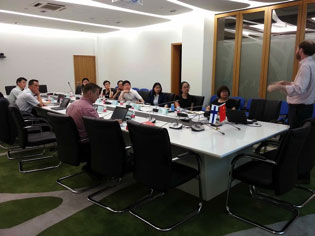
Sino-Finnish Learning Garden and EduTech Beijing Workshop: Continue joint efforts on education technology and learning service
Jun 12 2014Based on the good results from April Beijing Sino-Finnish Learning Garden meeting, China-Finland ICT Alliance and Beijing Normal University organised Sino-Finnish Learning Garden and EduTech Workshop in Beijing on 9 June.
The objective is to push forward pilots in education technology and learning services as well as to focus on technologies and services research, such as mobile and ubiquitous technologies in education, learning analytics, e-book standards and gaming
Prof. Yu Shengquan, Dean of School of Education Technology and Director, Joint Laboratory for Mobile Learning: Ministry of Education of China described experiences from a model for ubiquitous learning resources. The laboratory has been built under the national guideline of “Education Information Development Plan (2011-2020)” and “MOE and CMCC Strategic Cooperation Framework Agreement”, supported by “Ministry of Education – China Mobile Research Fund”. Cooperation presentations were also given, for example, by Prof. Shu Hua, National Key Laboratory of Cognitive Neuroscience and Learning; Prof. Teng Jun, Vice Dean, Institute of International and Comparative Education; Ms. Xie Xi, International Department, Beijing Normal University Publishing Group; Dr. Wang Jun, Deputy Director, Office of International Exchange & Cooperation; Mr. Mika Tirronen, Counsellor (Science & Education), Embassy of Finland in Beijing; Mr. John Zhuang, Director of Learning, China, Rovio; Prof. Yuzhuo Cai, Higher Education Group (HEG), School of Management, Chinese Education Research & Exchange Centre (CEREC), University of Tampere; Mr. Matti Hämäläinen, China-Finland ICT Alliance, DIGILE.
A co-creative research forum on education will be launched in autumn 2014 involving active China-Finland research units for education technology and learning services cooperation with first joint pilot projects.

New Business Ecosystem Programme Formed, EduTech Gathers Partners from China and Finland
Apr 29 2014On 24 April 2014 the Board of Directors of DIGILE approved EduTech as a new Business Ecosystem Programme and the first company groups for the business pilots have been formed. In the meeting education solutions were also highlighted as a focus area of ICT Alliance for year 2014. So far the EduTech Ecosystem has attracted around 20 companies at the Finnish side and there is growing interest in China and in joining EduTech, so we expect the number to reach 30 by end of 2014. The business pilots help to form relevant “clusters” around particular customer cases e.g. kindergartens, primary schools, high schools, universities, and vocational and professional education, where specific areas include transportation, senior care, and environmental issues.
The partners who have indicated interest in being involved in EduTech business pilots either as facilitators, customer or development partners in China include Beijing Normal University, East China Normal University, Wuhan AllKids Co., Ltd, CNIT – China Information Technology, Inc., BesTV and Shanghai Guofuguangqi Cloud Computing in China.
The first wave business pilot involves two pilot projects. DibiSchool is a pilot leader in the first EduTech Ecosystem launched in April 2014 and coordinated by DIGILE. DibiSchool partners with eOasis and Solution Space to serve the first pilot customer of TBD in China. As described by the company: “DibiSchool develops educational games for children for learning English with the lovable characters of the Dibidogs. The Dibidogs is an animation series with over 50 million viewers all around the world. In China, there are 14 channels showing the animation. Together with the pilot partners’ eOasis and Solutions Space, DibiSchool is creating new innovative services for Chinese kindergartens.”
The other pilot is in professional education in the transport area, more specifically for training airport personnel. This is a prime example of the training needs in a rapidly growing industry in China, where Finland has a good reputation. “Airport College International is dedicated to achieving optimum results for their clients operating in airline, airport handling and freight forwarding business. It provides a complete on-line training service for aviation and logistics industries. It takes part in pilot with partner of Context Learning and Neoxen.” The full range of web-based training programmes in safety, security and service topics comply with the regulations of international and national legislations and those established by governing bodies, such as the ICAO and IATA.
To complement the EduTech ecosystem that involves companies as partners, ICT Alliance has been preparing to launch an international EduTech Research Forum for involving universities and other relevant research actors, who are in charge of curriculum development, and guidelines. There are also discussions for setting up (joint) Cloud service in China ongoing to support joint R&D&I and pilots. In Finland the FORGE Service Lab is also now open as a relevant option for helping the development of “Education-as-a-Service” offerings.

Preparation for Setting Up ISEEL Joint Lab on Senior Service and Smart Home in Shanghai
Apr 22 2014On 8-9 April and 14-17 April meetings were held in Shanghai, including meetings with BesTV/SMG, Tekes, Tongji University and Aalto University and VTT experts and the Sino-Finnish Center team. The meetings with BesTV involved Mr. Liu Yong, Deputy General Manager of International BD Department, and Mr. Zheng Jie, VP Exec Vice Dean of BesTV Research Institute, and other colleagues. Joint interests were identified in the area of smart home services and specifically such that will be relevant to the elderly at home. It was suggested that during 2014 a joint roadmap for Sino-Finnish cooperation in this area would be outlined. For providing appropriate working platforms and for involving experts the local institutions and development environments are planned to be involved, in particular the new ISEEL Joint Lab to be set up at the Sino-Finnish Centre of Tongji University (see below).
On 16 April it was announced that Mr. Matti Hämäläinen, DIGILE / ICT Alliance and Aalto, has been appointed as a National High-end Foreign Expert (under the State Administration of Foreign Experts Affairs Program) at Tongji University to act as the Director of a new Joint Lab on Intelligent Services Embedded in Everyday Life for the Wellbeing of Elderly (ISEEL). The aim, in accordance to the co-creative approach of the ICT Alliance, is to create an open platform based at Tongji University, at the Sino-Finnish Centre (SFC), for research, education and innovation. It would bring together academic experts, students, companies, public entities, NGOs and other relevant actors from China, Finland and internationally for the co-creation and study of solutions for “smart home” and “smart life” with a special focus on the wellbeing of elderly.
At Tongji the meetings with experts were organized, including Prof. Lou Yongqi, Dean, College of Design & Innovation, Prof. Liu Fuqiang, School of Electronics and Information Engineering, Prof. Dong Hua, Dean of College of Arts and Media, and Dr. Su Yunsheng, Shanghai Tongji Urban Planning & Design Institute and co-founder of “Urban China” Magazine, and the Aalto SFC key people, Prof. Matti Nojonen and Mr. Matti M. Hämäläinen. The topics included the preparation of the ISEEL Lab activities as well as on-going ICT Alliance projects, the related Aalto – Tongji cooperation, and education related initiatives in the Sino-Finnish Learning Garden and the EduTech Ecosystem. One potential pilot in the professional education area is specifically senior care services training.

China-Finland ICT Alliance: Newsletter: January-March 2014
Apr 16 2014
China-Finland ICT Alliance Finnish Partners Workshop


It includes University of Oulu, Aalto University, University of Helsinki, Shanghai Jiaotong University, Tsinghua University, Beijing University of Posts and Telecommunications (BUPT), and Huazhong University of Science and Technology as its academic partners. Sensing City Traffic was presented by Dr. Timo Nyberg, Aalto University. The academic partners include Aalto University and Chinese Academy of Sciences. These projects intensify research cooperation among each other and with related projects in Finland and China as described in the Research Forum Working group section below.
The project focusing on navigation systems cooperation, Finland’s Enhanced Navigation using COMPASS/Beidou Signals, was presented by Dr. Laura Ruotsalainen, Finnish Geodetic Institute (FGI). Finnish Geodetic Institute (FGI), GNSS Research Center (GRC) in Wuhan University, and Chinese Antarctic Center of Surveying and Mapping (CACSM) are the research partners. There is an interest both sides in China and Finland to extend this cooperation to include new research partners and companies (e.g. with Geostar who also joined the workshop).
Related to future activity planning, presentations were also given by invited experts: Dr. Sergey Andreev with Prof. Evgeny Kucheryavy, Tampere University of Technology, presented their research on Improved Connectivity and Service Experience in Heterogeneous 5G Deployments; and Future Networking cooperation (Beyond Internet) was represented by Dr. Arto Karila and Dr. Dmitrji Lagutin, who have been carrying on cooperation with Future Network Innovation Institute of China (FNII) based in Nanjing.
In the working session Prof. Jyrki Nummenmaa, University of Tampere, introduced their research activities in intelligent traffic (related to the City of Tampere’s Intelligent Traffic activities) and cooperation links in China.
An update on eServices and eBusiness research and the eBEREA network activities was presented by Prof. Jukka Heikkilä, University of Turku. Currently, active areas include research on developing and implementing digital services for “young elderly” in the BeWell research activity. It is now a part of DIGILE’s D2I research programme and has several company and research partners in Finland and is closely linked with international partners in China, Germany, Italy, Sweden and The Netherlands.
Dr. Risto Vilkko, Academy of Finland, presented the cooperation framework between the Academy of Finland and the National Natural Science Foundation of China (NSFC) and the process for the ongoing preparation of a joint call on 5G networks. Dr. Mika Klemettinen, Tekes, described Tekes’ activities and future directions in the networking and Internet of Things areas that are thematically related to the ongoing and new initiatives in ICT Alliance. Companies in the field of future networks, everyday sensing and social media, and geoservices were presented by Dr. Philip Ginzboorg, Huawei, Mr. Kimmo Valtonen, M-Brain and Mr. Tony Liu, Geostar (WudaGeo).

China-Finland Workshop on 5G Networks in Shanghai
The objectives of the workshop were to discuss current developments in future network research, identify joint research interests in the field of 5G and finalise the collaborative Finland-China research project agenda. Considering the long term track record in Finland on cellular network development starting from General System for Mobile Communications (GSM), and the urgent demand for advanced mobile technologies in China, it is beneficial and strategic important to carry on joint 5G research in areas such as system design; air interface and multi-antenna; new spectrum, millimetre wave air interface and backhaul; efficient hardware and platforms, multi-cell, and signal processing; as well as management and modelling.
From the Chinese side, technical presentations were given by Prof. Xiaohu Ge, Huazhong University of Science and Technology, Prof. Jianhua Zhang, Beijing University of Posts and Telecommunications, Prof. Honglin Hu, Shanghai Institute of Microsystem and Information Technology, Chinese Academy of Sciences, Prof. Qinyu Zhang, Harbin Institute of Technology, Dr. Fusheng Zhe, ZTE Corporation, Prof. Hua Zhang, Southeast University, Prof. Pinyi Ren, Xi’an Jiaotong University, Prof. Shengjie Zhao, Tongji University, Prof. Zhisheng Niu, Tsinghua University, Prof. Gang Wu, University of Electronic Science and Technology of China, Prof. Wuyang Zhou, University of Science and Technology of China, and Prof. Lingyang Song, Peking University.
From the Finnish side, presentations were given by Prof. Evgeny Kucheryavy, Tampere University of Technology, Prof. Mikko Valkama Tampere University of Technology, Dr. Sergey Andreev, Tampere University of Technology, Prof. Sasu Tarkoma, University of Helsinki, Dr. Tao Chen, VTT Technical Research Centre of Finland, Prof. Antti-Heikki Tölli, University of Oulu, Prof. Riku Jäntti, Aalto University, and Dr. Kari Pehkonen, Broadcom Communications Finland Ltd. On behalf of China-Finland ICT Alliance, Dr. Jani Kaarlejärvi talked about the 5G elements of Horizon 2020, and financial opportunities in setting up joint, large-scale Finland-China-EU projects in the field of 5G. To begin a joint 5G EU proposal planning raised a lot of interest, and one or two joint teams could be set up to begin the planning for Call 14.
After three days of actively elaborating of the content of the joint call for Chinese-Finnish scientific cooperation, National Natural Science Foundation of China and Academy of Finland signed the Memorandum of Understanding concerning joint call on 5G networks. According to the preliminary schedule, the joint call will be published and opened in June 2014, decisions will be made in October 2014 and the funding period would begin in early 2015.
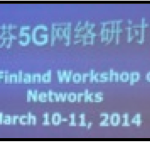
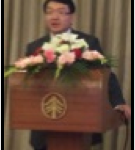

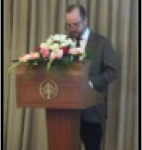

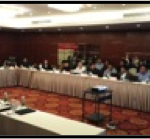
China-focused EduTech Business Ecosystem Workshop
Education is a focal area in China-Finland cooperation and to better synchronise activities and boost the impact of cooperation, the ”Sino–Finnish Learning Factory” (SFLF) initiative has been prepared under the direction of the Finnish Ministry of Education and Culture together with a team of experts from companies, research institutions and organisations. The initial areas suggested for the SFLF initiative include: learning research, teacher training and learning solutions, i.e. technology, services, and content ranging from kindergarten to primary, secondary and higher education and to vocational and professional education. When preparing the SFLF initiative, Digile as the Coordinator of China-Finland ICT Alliance has been invited to facilitate the cooperation of education technology and services companies, including related piloting and research. The preparation of EduTech business ecosystem started by Digile in 2013 together with those companies that were interested in education technologies and services area, under a theme “Education-as-a-Service”.

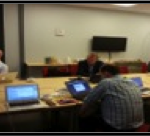
The second pilot was outlined by Mr. Ari Ketola, Context Learning Finland, Mr. Pentti Mero, Airport College, and Mr. Esa Tervo, Neoxen. It focuses on professional and corporate training, on transport and logistics in particular, targeting e.g. airport professional training. Mr. Mika Martikainen, Skilltize, described their offering in real-time online training and tutoring, with an initial focus on languages (English and other) and mathematics. Synergies were identified among these two pilots in planning and potential for a few additional pilots to be specified during the planning process. It has also become obvious that there is an interest among the partners to involve research centers in the EduTech cooperation model. A Research forum for education technologies and services focus area within ICT Alliance is now in active planning.
Focus area: Intelligent Sensing and Services for Traffic and Mobility in Urban Environment
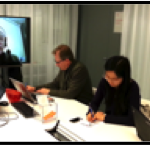
Focus area: Elderly Services and Smart Home
In the ICT Alliance context, there has been an interest among a group of universities and companies to develop cooperation that would more actively link the areas of elderly services, personal health and wellbeing and smart home together. A “Home-as-a-Service Platform” concept has been introduced by Digile as a potential framework to bring together related activities in these complimentary areas. For example, a “Home based personal services for elderly” concept is being developed by Active Life Village and its partners in close cooperation with cities, such as the City of Espoo.
Elderly services and smart home solutions will be discussed in Beijing in early May 2014 in an international cooperation meeting hosted by the Beijing Academy of Science and Technology (BJAST), a key ICT Alliance partner in this area, involving also Fraunhofer IAO and representatives from Taiwan and Korea. Dr. Matti Hämäläinen, as the ICT Alliance representative, will also join the “3rd China International Senior Services Expo” (CISSE 2014) that is the main event in this field. This trip will also include visits to Zhongguancun Z-Park and Life Science Park for extending cooperation in these areas (these events coincide with the planned visit of Minister for Social Affairs and Health, Paula Risikko, in Beijing at the same time).
Hanasaari Forum on Nordic Education, Exporting Education Knowhow and China Cooperation


Focus area: Environmental Monitoring (Air Quality)
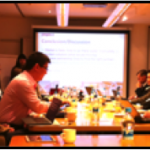
Pure Finland 2014 – High-level Events in Beijing in Autumn 2014

- “Coolest brands from Finland”, September;
- “Destination Finland”, 23-25 October;
- “Innovation Finland”, 25-27 November; and
- “Creative Finland”, December.
Jani Kaarlejärvi Appointed an Advisory Board Member in the European Commission funded CHOICE project on EU-China cooperation on ICT R&D&I
Through its objectives, the CHOICE project creates a bridge towards Horizon 2020 to shift away from technology-driven towards innovation-driven ICT R&D based on societal and consumer needs:
• Identify obstacles to reciprocity and encouraging a more balanced ICT R&D&I relationship with China based on reciprocity, supporting European nationals, companies and organisations willing to access Chinese research programmes;
• Highlight and showcase European and Chinese excellence in ICT R&D; and
• Strengthen EU-China industrial ICT R&D cooperation, also with the view of preparing the ground for new upcoming rules governing EU-China ICT R&D cooperation under Horizon 2020.

Next Activities and Actions
- China-Finland ICT Alliance new initiative meetings in Shanghai, Beijing and Wuhan, 7-17 April
- Cooperation meetings on Elderly Care Services and “Smart Home for elderly”, 3-9 May, Beijing
- China-Finland ICT Alliance new initiative meetings in Shanghai and Beijing, June
- ICT Alliance Research Forum on Intelligent Sensing and Services in Urban Environment for Traffic and Mobility (ISSUE-TM) during the 10th ITS European Congress, 16-19 June, Helsinki
- International Conference on Management Science and Engineering (21th) (ICMSE2014) in cooperation with eBEREA network, 17-18 August, Helsinki
- Finnish-Chinese Workshop on Analysis of Social Media, University of Tampere, 6-13 August, Tampere
- Pure Finland, “Coolest brands from Finland”, September, Beijing
- Shanghai Design Week, 13.-17.10.2014, Shanghai
- Radical Design Week, 16.-25.10.2014, Shanghai
- Pure Finland, “Destination Finland”, 23-25 October, Beijing
- Pure Finland, “Innovation Finland”, 25-27 November, Beijing
- Pure Finland, “Creative Finland”, December, Beijing
More Information on China-Finland ICT Alliance and Digile
For more information, please visit the China-Finland ICT Alliance website www.ictalliance.org, Digile website www.digile.fi and http://www.digile.fi/DIGILEintro or contact Dr. Matti Hämäläinen and Dr. Jani Kaarlejärvi (firstname.lastname@digile.fi).
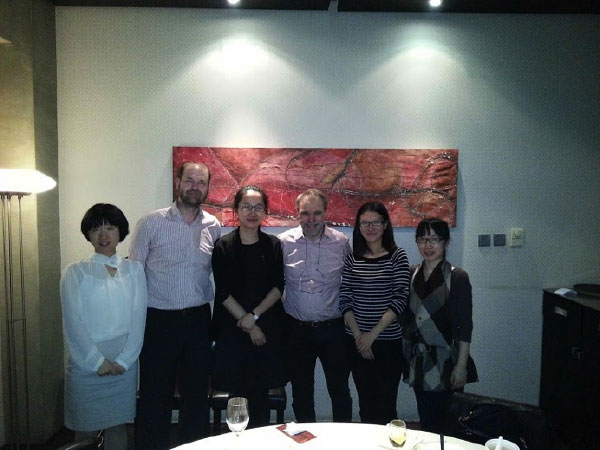
Sino-Finnish Learning Garden Meeting in Beijing: New learning solutions and technologies are needed for Chinese basic and vocational education
Apr 15 2014On 10 April EduTech meetings were organised in Beijing for planning the SFLG development with MoEC, and with Beijing Normal University (BNU), the leading education university, and with BNU Publishing Group, a leading educational publisher in China.
In the meetings with Mr. Mika Tirronen, Counsellor (Science & Education), Embassy of Finland, the key cooperation areas were discussed, including both basic education and vocational education areas that are currently in focus in China and considered for renewal based on learning from best practices and solutions in other countries. Finland is a recognised partner in these areas.
The role of local authorities is of prime importance. Cooperation with Beijing Municipal Education Committee (BMEC) and Shanghai Municipal Education Committee (SMEC) has been initiated. There is interest in linking schools directly to the SFLG activities in these cities and with the corresponding cities in Finland. The sister city relationship of City of Espoo and City of Shanghai and the relationship of the City of Helsinki and City of Beijing will help to facilitate the linking of corresponding education authorities and schools. There is already ongoing cooperation among the schools, including headmasters and teachers, as well as visit programmes.
When considering the role EduTech Ecosystem and Research Forum, we see the technology based solutions helping to boost the collaboration and learning of new practices and solutions both ways, and bring the physical space and the ritual online space together. To support the cooperation, the concepts of “Joint Learning Labs” and “Finland Classrooms” have been discussed with the involved universities and companies in Finland and in China.
Meeting with CEREC representatives, Mr. Yuzhou Cai, and a delegation from the University of Tampere, was organised at BNU to jointly plan the cooperation with CEREC in the SFLG EduTech area and in the China-Finland ICT Alliance. CEREC and the corresponding center at BNU, the Finnish Education Research Centre (FERC), have already established cooperation and can support in several areas including learning administration, quality assurance, teacher training, and guidelines development.
At BNU, Ms. Jun Wang, Deputy Director, Office of International Exchange & Cooperation, hosted a meeting with Mika Tirronen, Matti Hämäläinen and Jani Kaarlejärvi from the Finnish side and Prof. Shengquan Yu, Director, the Joint Laboratory for Mobile Learning, Ministry of Education – China Mobile Communication Corporation, and Ms. Xi Xie, Beijing Normal University Publishing Group (BNUPG) to discuss the research and business pilots cooperation planned to be launched during 2014.
BNU is in a position to become a key hub for EduTech research and as well as facilitate EduTech Ecosystem business pilots in selected test schools to help understanding the requirements of the local schools as well as those set by the national and local curriculum. When relevant content and digital solutions have been identified, BNUPG will consider involvement in their focal areas respectively. BNUPG has been recognised as a higher education publisher and they also indicated interest in Kindergarten area solutions and content. It was agreed that follow-up meetings all be organised in June and joint workshops to be planned for the October-November time frame when high-level land expert delegations will visit China (possibly to be organised to coincide with the PURE Finland events).
In addition to introducing the solutions form Finland, a key area in the EduTech cooperation will be joint development and testing of new learning solutions and learning environments. This can involve mobile learning, ubiquitous access, wearable technologies, augmented reality and related technologies that help bridge the physical and virtual world. This may take place in the Joint Lab that BNU has set up with China Mobile (CMCC). The next step is to start planning of concrete the cooperation in development, testing and piloting of education technology solutions and services as well as joint research, including e.g. learning analytics, sensing technologies, and others.
For EduTech the next step will be identifying the potential pilots for BNU and BNUPG to discus with the selected Finnish companies. BNU has already a good experience in working with Finnish approach in the GraphoGame case, developed by the University of Jyväskylä (Prof. Heikki Lyytinen and his team). The potential solutions to be piloted include educational games for maths, languages, and other skills, including music. Also, new learning service platforms and technologies (e.g. ultra low energy e-paper, NFC and other physical world /digital world interaction) are potential candidates.

Keynote address from Ms. Marja Aspelund
Sep 28 2013
Ms. Marja Aspelund, Consul General of Finland in Shanghai
Keynote address
China-Finland ICT Alliance Official Phase II Kick-off Forum, Shanghai, 24 September 2013
Dear experts and friends of the China-Finland ICT Alliance,
On my behalf, I would like to welcome all partners and other invited experts to this China-Finland ICT Alliance Phase II kick-off event.
I am delighted to notice that so many Finnish and Chinese partners have gathered this week to work on topics of joint interest and also to develop cooperation models and mechanisms even further.
This kind of cooperation is exactly what we need.
As we all are aware, China is a key partner for Finland in many areas.
Especially in the field of research, development and innovation (R&D&I), the importance of China has grown very rapidly during the last few years. China is number one in many fields.
China has its strengths, and Finland has its own. By actively linking these strengths and capabilities together, we can create a successful innovation environment for our business, industrial and academic cooperation.
This innovation-friendly environment is needed to develop new ideas, to test and to commercialise them and to create new jobs thus benefitting society as a whole.
To strengthen Finland-China R&D&I cooperation, many key decision-makers have visited China this year. Our President Mr. Sauli Niinistö visited China in the Spring and now very recently our Prime Minister Mr. Jyrki Katainen headed a business delegation.
Likewise, many Chinese leaders have been in Finland. For example, Mr. Yang Xiong, Mayor of the City of Shanghai visited the Helsinki Metropolitan area and Shanghai’s sister city, Espoo, in August.
One of the guiding themes of all these important visits has been innovation and the utilisation of new digital solutions in various areas of industry and society, including aging care, urbanisation, traffic, environment, education, and other areas.
In all these so called grand societal challenges ICT and digital services can produce very concrete solutions.
To enable so called systemic transformations, it is important to combine both top-down and bottom-up approaches and involve key stakeholders. In many areas the active role of cities is essential. City of Shanghai is a very good example of the development of future cities and we appreciate longstanding cooperation that City of Shanghai has had with Finland, and with City of Espoo in particular.
Also the education sector can take much bigger role in boosting innovation. In addition to facilitating research on specific areas of technology and application, the ICT Alliance has demonstrated its potential for becoming actively involved in ongoing developments in China’s education and innovation systems.
There is still a substantial unleashed potential, and students and university campuses represent a unique environment for creating and testing new solutions. This aspect is also included the ICT Alliance’s next phase activities.
When launching the ICT Alliance Phase II today, we are very happy to recognise that projects and activities focus on jointly identified key industrial and academic areas. For example:
Green communication: Energy efficient networking and future networks help address many needs in very rapidly growing wireless communication.
Intelligent city: Development of technologies for intelligent cities enable new solutions for traffic and various demand-driven services that again enable better use of resources.
Ageing: Finding solutions for ageing society, elderly care and wellbeing, are a common challenge. The scale in China makes it also a major opportunity for jointly creating globally unique and competitive solutions.
Environmental solutions: Environmental monitoring and sensing as well monitoring and control of energy use are topics that have gained a lot of attention and are included in Phase II projects.
Education: In the education area, ways of learning and supporting technologies are in transition. Finland together with China can create totally new solutions to learning by combining expertise in teacher training, in learning and brain research, in mobile and low energy technologies and in game areas.
China-Finland ICT Alliance has been active since 2009, and it has very well met its objectives in stimulating cooperation between China and Finland.
Now, at the launch of phase II projects the initial scope has extended and expectations are even higher.
Together China and Finland are well positioned for co-creating new innovative solutions and global breakthroughs.
China has extensive resources for research and development – and a large single market for highly scalable solutions. Finland has complementary expertise in key areas and can also act as a “gateway” linking the European Union and other international partners and markets together.
I wish you an interesting forum, and I am confident that the topics discussed here, including digital solutions for future networks, energy efficiency, navigation, sensing, and applications in traffic, wellbeing, environment, education and, others are exactly those that will create new business opportunities for both Finland and China.
By working together we can reach our global objectives in R&D&I.
Thank you for your attention.
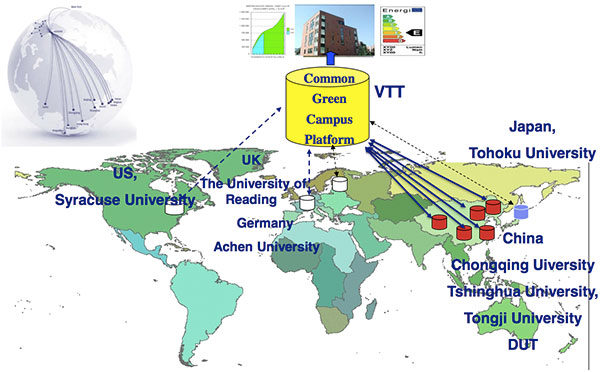
Green Campus
Sep 22 2013Project facts
- GreenCampus LivingLab
- Aug 2013 – Jun 2016
Objectives
- To develop an internet based monitoring, evaluation and benchmarking platform to be used in the performance assessment and continuous commissioning of buildings in various university and research campuses. Pilot implementation will take place in Tampere and Otaniemi campus areas including numerous buildings used by TUT, Aalto University and VTT, respectively.
- At the same time, one mirror platform will be constructed in China together with Chinese partners (Tongji, Tsinghua, etc.). After pilot implementations GreenCampus platform will be opened for new universities in order to create a global climate combat example for higher education and research facilities.
- The GreenCampus will be demonstrated as an eco design model for higher education and research facilities and will be used as a LivingLab plarform in common R&D&I projects
GreenCampus Platform for China-Finland R&D&I Living Lab
International Green Campus platform

eBEREA
Dec 13 2011eBEREA is a joint exchange programme dedicated to advance research and higher education in the fields of electronic business in EU and China.
The programme aims at advocating a prospering eSociety by means of researching electronic business, more specifically business modelling and design; related financial services for consumers and citizens; and the institutional arrangements such as regulation and trust enhancing mechanisms.
In China, the importance of electronic business is continuously increasing. With the rapid development, it is also facing challenges and emergent issues in codes of conduct, financing as well as legislation. Therefore eBusiness researchers in China are keen to exchange knowledge with their colleagues in Europe.
For Europe, the research collaboration with China provides a new opportunity to study eBusiness of high volumes and high growth rates: the largest and busiest eBusiness sites in the world are Chinese. The decisions made by Chinese authorities and economic players are of global importance and crucial to the development of global eBusiness environment.
Our objective in the eBEREA consortium is to build sustainable networks of researchers for the exchange of information between and among Chinese and European Universities for the prosperity of fair eBusiness, eCommerce and eServices for the good of the societies.
To achieve this we at eBEREA
- exchange faculty i.e. teachers and researchers
- exchange and provide facilities for post docs and Ph.D. students for high quality relevant research in joint research projects
- implement exchange programs for Master and Bachelor student on mutual exchange agreements
- network with other universities, companies, authorities, and customer communities.

